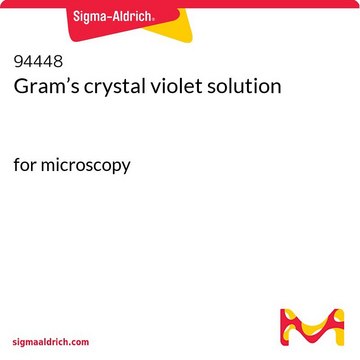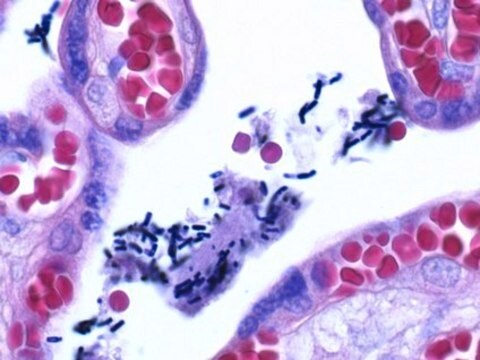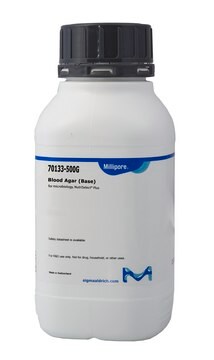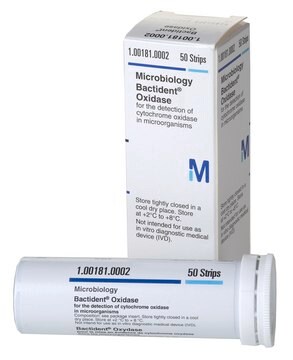01869
Hippurate Strips Kit
suitable for microbiology
Sinónimos:
Hippurate Strips
About This Item
Productos recomendados
technique(s)
microbe id | specific enzyme detection: suitable
application(s)
clinical testing
environmental
food and beverages
microbiology
storage temp.
2-8°C
suitability
Campylobacter spp.
Gardnerella vaginalis
Streptococcus spp.
¿Está buscando productos similares? Visita Guía de comparación de productos
Application
The test is based on hydrolysis of substrate (sodium hippurate) by the bacterial enzyme hippurate hydrolase and production of benzoic acid and glycine. Glycine produced by this enzymatic reaction is detected after 24 hours incubation in reaction with chromogen (ninhydrine) and the blue-purple substance is produced.
Components
signalword
Danger
Hazard Classifications
Acute Tox. 4 Oral - Eye Dam. 1 - Flam. Liq. 2 - Skin Irrit. 2 - STOT SE 3
target_organs
Central nervous system, Respiratory system
Storage Class
3 - Flammable liquids
flash_point_f
50.0 °F - closed cup
flash_point_c
10 °C - closed cup
ppe
Eyeshields, Gloves, type N95 (US)
Elija entre una de las versiones más recientes:
¿Ya tiene este producto?
Encuentre la documentación para los productos que ha comprado recientemente en la Biblioteca de documentos.
Los clientes también vieron
Artículos
For microbiologists the most fundamental stain was developed in 1884 by the Danish bacteriologist Hans Christian Gram.
Nuestro equipo de científicos tiene experiencia en todas las áreas de investigación: Ciencias de la vida, Ciencia de los materiales, Síntesis química, Cromatografía, Analítica y muchas otras.
Póngase en contacto con el Servicio técnico







